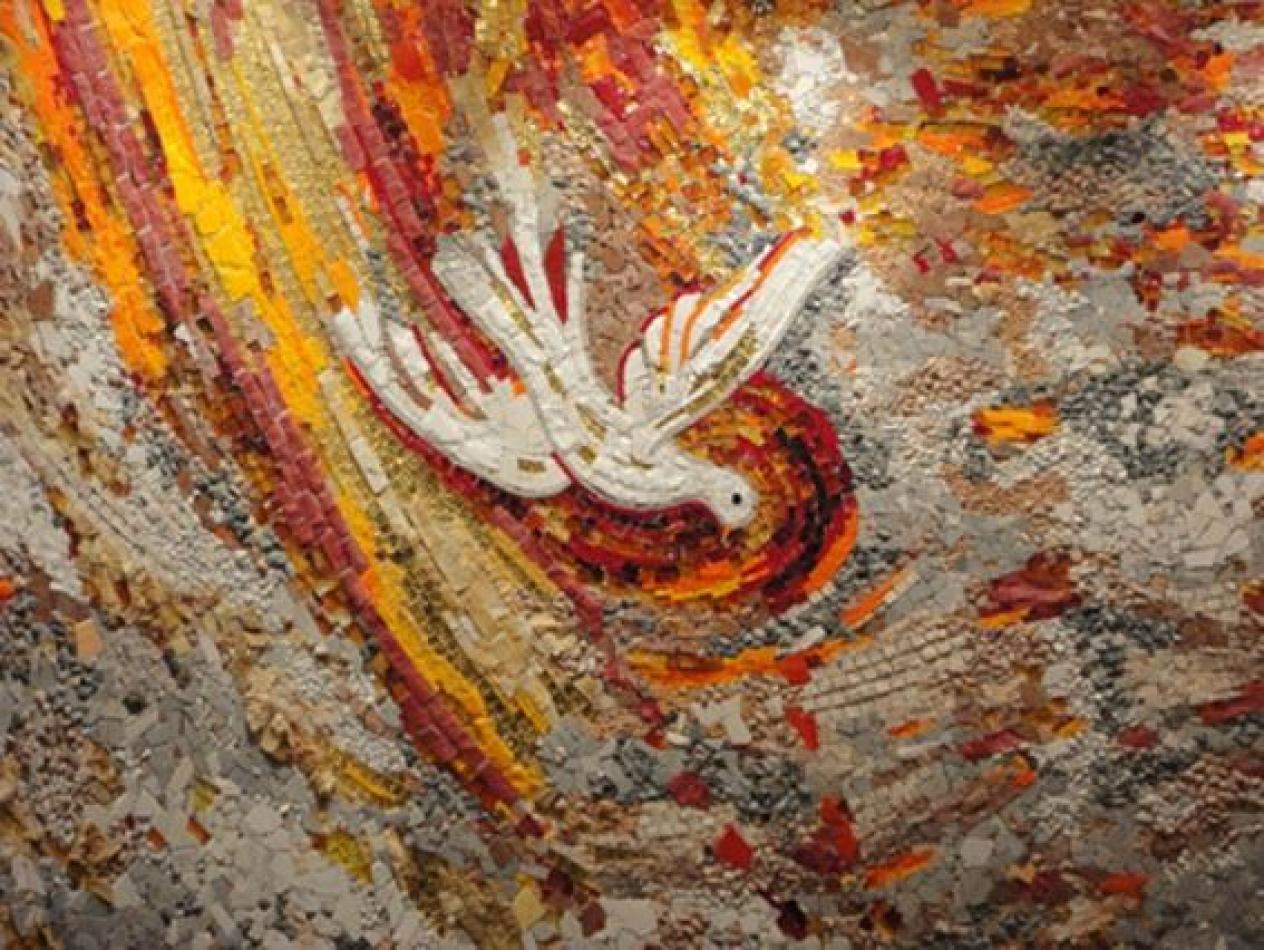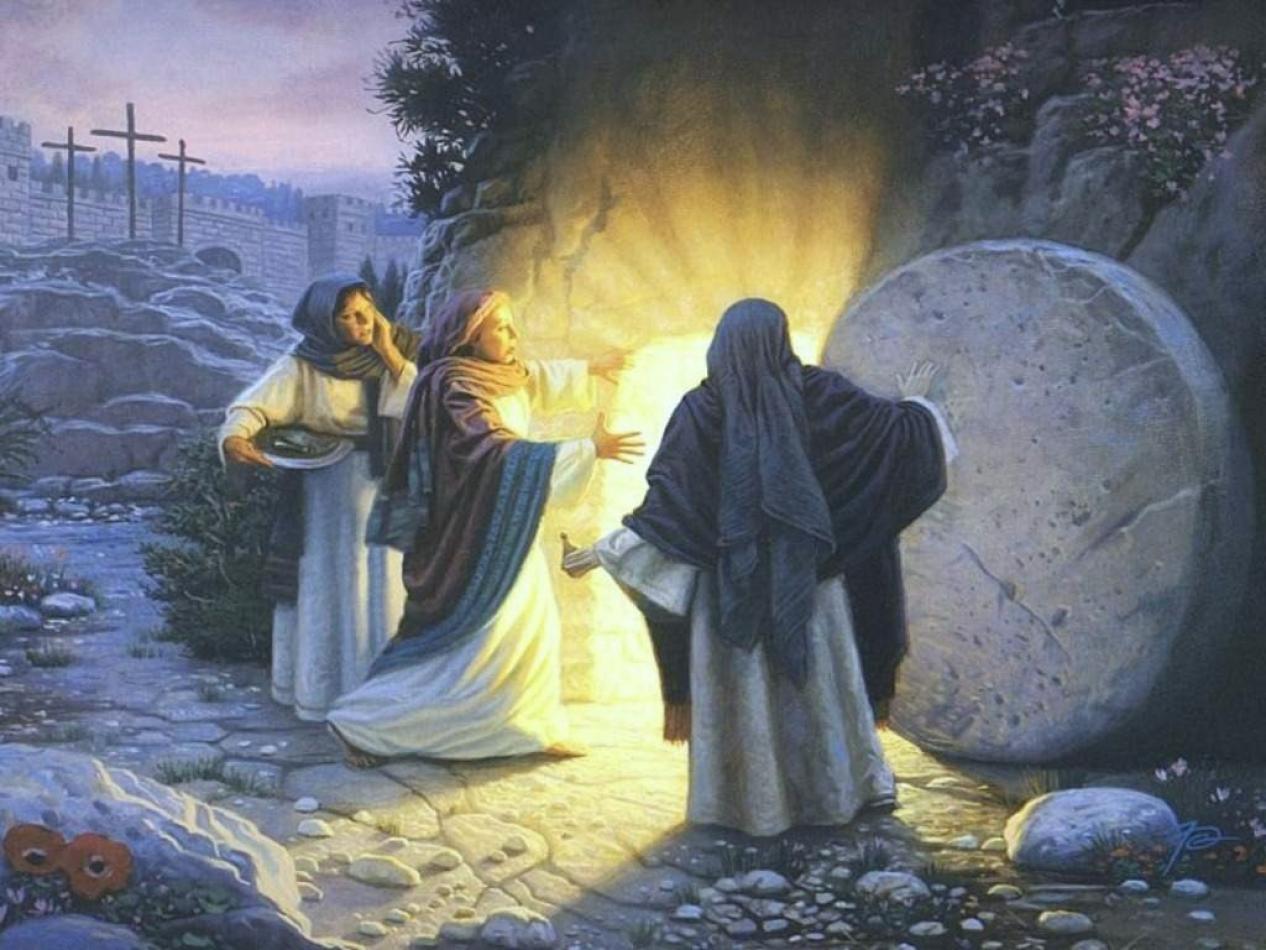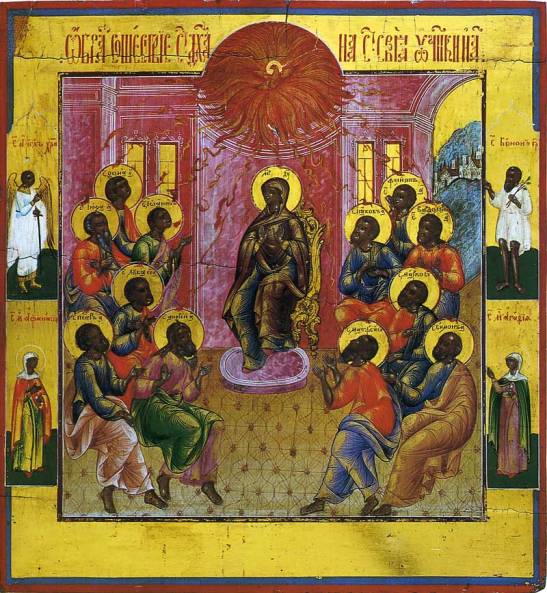Daniel Comboni
Comboni Missionaries
Institutional area
Other links
Newsletter
Where the Spirit goes, evil is overcome, sin is forgiven—cancelled, destroyed—and the new being, modelled on the person of Christ, is born. The mission that the Risen One entrusts to his disciples is to forgive sins, thus continuing his work as the “Lamb of God, who came to take away the sins of the world” (Jn 1:29).
John 20:19-23
GOSPEL REFLECTION
For the first Christians, the first day of the week is important because it is the day of the Lord (Rev 1:10). It is that day in which the community usually reunites to break the Eucharistic bread (Acts 20:7; 1 Cor 16:2). It is evening. The temporal indication with which the evangelical passage starts is precious. Perhaps it indicates the late hour in which the early Christians were used to gather for their celebration.
The doors are locked for fear of the Jews (v. 19). Jesus certainly did not announce triumphs and easy life to his disciples. “You will have trouble in the world,” he said (Jn 16:33). However, the main reason for insisting on closed doors (Jn 20:26) is theological. John wants to make it clear that the Risen One is the same Jesus that the apostles have seen, known, heard, touched, but is in a different condition. He is not back to his previous life (as Lazarus did). He enters into a completely new existence. The body is no longer made of material atoms. It is imperceptible to the verification of the senses.
The resurrection of the flesh is not equivalent to the resuscitation of a corpse. It is the mysterious blossoming of a new life from a finite being. Paul explains this fact through the image of the seed. He says that “the body is sown in decomposition; it will be raised never more to die. It is sown in humiliation, but it will be raised for glory. It is buried in weakness, but the resurrection shall be with power. When buried it is a natural body, but it will be raised as a spiritual body” (1 Cor 15:42-44).
When Jesus shows his hands and his side, the disciples rejoice. A surprising reaction: they should be sad seeing the signs of his Passion and Death. Instead, they rejoice, not because they find themselves in front of the Jesus whom they accompanied along the roads of Palestine, but because they see the Lord (v. 20). They realize that the Risen One, who is revealing himself to them, is the same Jesus who gave up his own life.
John places the manifestations of the Risen One in the context of the first day of the week. He wants to tell the Christians of his community that they too can meet the Lord. They will not encounter Jesus of Nazareth with the material body he had in this world, but the Risen One, every time they come together “in the Lord’s day.” After having twice addressed them the greeting: Peace be with you! (vv. 19:21) Jesus gives His Spirit to the disciples and confers them the power to forgive sins (vv. 21-23).
The disciples are sent to fulfill a mission: “As the Father has sent me, so I send you.”
When he was in the world, Jesus made the face and the love of the Father present (Jn 12:45). Now, having left this world, he continues his work through the disciples on whom he confers his Spirit. Welcoming him was welcoming the Father who sent him, now welcoming his envoys are welcoming him (Jn 13:20). To understand the mission entrusted to the apostles, the forgiveness of sins through the outpouring of the Spirit, we must refer to the religious conceptions of the people of Israel and to the words of the prophets.
At the time of Jesus, it was widely thought that the people were acting badly. They defiled themselves with their idols. They were unclean because they were moved by an evil spirit. We wondered when God would intervene to rescue them and to instill in them a good spirit.
In the Letter to the Romans, Paul makes a dramatic description of the miserable condition of the person who is at the mercy of the evil spirit: “I cannot explain what is happening to me because I do not do what I want, but on the contrary, the very things I hate. I know that what is right does not abide in me, I mean in my flesh. I can want to do what is right, but I am unable to do it. In fact, I do not do the good I want, but the evil I hate” (Rom 7:15-19).
Through the mouth of the prophets God promised the gift of a new spirit, of His Spirit: “Then I shall pour pure water over you and you shall be made clean—cleansed from the defilement of all your idols. I shall give you a new heart and put a new spirit within you. I shall remove your heart of stone and give you a heart of flesh. I shall put my spirit within you and move you to follow my decrees and keep my laws” (Ezk 36:25-27).
This outpouring of the Lord’s Spirit would renew the world. He will flood it—said the prophet Ezekiel—like a rushing torrent of water which, when it enters the desert, makes it fruitful and turns it into a garden. “Near the river on both banks there will be all kinds of fruit trees will foliage that will not wither and fruit that will never fail; each month they will bear a fresh crop because the water comes from the temple. The fruit will be good to eat and the leaves will be used for healing” (Ezk 47:12). They are delightful images that admirably describe the life-giving work of the Spirit.
On Easter day these prophecies are fulfilled. In a symbolic gesture—Jesus breathed on them—the Spirit is consigned. This breath recalls the moment of creation, when “the Lord God formed man, dust drawnfrom the clay, and breathed into his nostrils a breath of life” (Gen 2:7). The breath of Jesus creates the new person, one who is no longer a victim of the forces that lead to evil but is animated by a new energy that drives him to do good.
Where the Spirit goes, evil is overcome, sin is forgiven—cancelled, destroyed—and the new being, modelled on the person of Christ, is born. The mission that the Risen One entrusts to his disciples is to forgive sins, thus continuing his work as the “Lamb of God, who came to take away the sins of the world” (Jn 1:29).
What does it mean to forgive sins? These words have been interpreted—in the right way but limited—as the conferment on the apostles the power to absolve from sins. It’s not the only way to forgive, that is, to neutralize in order to overcome sin. The rights conferred by Jesus is much more extensive and involves all the disciples who are animated by his Spirit; it is that of cleansing the world of every form of evil. The powers are not two, but one—to forgive or to retain—at the discretion of the confessor that evaluates each case.
The power is only one, that of annihilating sin, in all ways. But this can also be not forgiven, if the disciple is not committed to creating the conditions that all may open their hearts to the action of the Spirit, the sin is not remitted.
Of this failure of the mission, the disciple is responsible.
READ: Jesus breathes the Holy Spirit onto the disciples. On the day of the Pentecost, the Spirit descends on them as tongues of fire. In baptism, we have all received the same Spirit who unites us into one body of Christ.
PRAY: Pray for an increase in the power of your faith. Pray that the Spirit will rekindle the passion to live with God and for God. Pray for the gifts and the fruits of the Holy Spirit.
REFLECT: The Holy Spirit is the life of the Church and every Christian. He animates us and gifts us with the charisms for the good of the society. He helps us relate to one another as sisters and brothers of Christ, thus uniting us into one body of Christ. The Holy Spirit is the union and understanding among peoples.
ACT: Take a leisurely, solitary walk and feel your kinship with the entire creation, giving thanks to the Spirit.
Fernando Armellini
Italian missionary and biblical scholar
https://sundaycommentaries.wordpress.com





